Several measures in Australia’s Covid response would not be accepted again, Covid-19 Inquiry report finds
A large-scale report into Australia’s response to Covid-19 found trust had been “eroded” due to “heavy-handed” measures taken in the pandemic.
Australians are “unlikely” to accept large-scale Covid-19 measures and restrictions in an inevitable future pandemic, with “heavy-handed” rules and large-scale vaccine mandates key factors to eroding trust.
As a result, vaccine immunity for diseases has waned, with a warning of “co-occurring outbreaks” that could overrun Australia’s health system.
The final report into Australia’s large-scale Covid-19 response has been released and warns the government that it needs to “rebuild trust” with the public, with “many of the measures taken during Covid-19 unlikely to be accepted by the population again”.
While Australians were more likely to follow government directives at the beginning of the pandemic, trust increasingly “eroded” as the pandemic continued, the report said.
Co-authored by former NSW Health director general Robyn Kruk, epidemiologist Catherine Bennett and health economist Angela Jackson, the report found this was, in part, because people weren’t given reasons behind the advice underpinning restrictions.
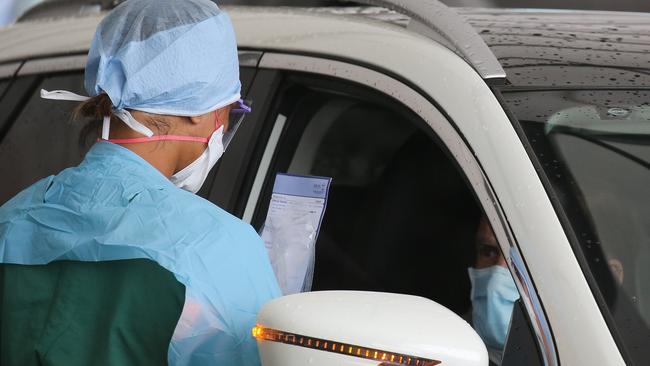
“This fed the perception that the government did not trust the public to understand or interpret the information correctly and contributed to the decrease in trust,” it said.
Submissions made to the inquiry noted that restrictive measures became “increasingly inappropriate” and were too “heavy-handed and controlling”.
The report recommended that a future public health emergency response should consider “fairness and proportionality when implementing and enforcing restrictive measures”.
Health Minister Mark Butler said the report was “thorough and measured” and vowed to implement its recommendations.
“We have a responsibility, particularly as a government, to examine our response to the pandemic, to learn what we did well, and in particular, to learn what we could have done better, and importantly, to build, as this report describes it, a high-level playbook for the next pandemic because we know there will be the next pandemic,” he said.
Mr Butler acknowledged Australia’s pandemic plans were “grossly inadequate”, limited Australia’s effectiveness and forced leaders to “build the plane while it was flying”.
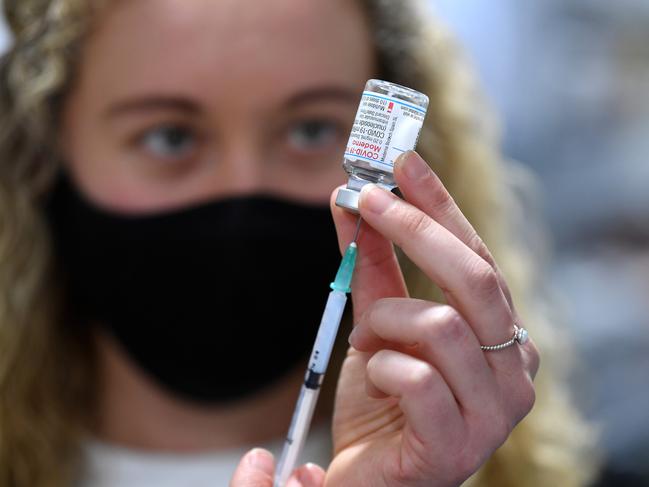
He also said Australia was slow to shift from the emergency “lock everything down” response to “evidence-based approaches” that balanced “risks and benefits” and took account of non-health impacts.
The long-term effect of lowered trust in vaccines has also meant jab rates for many diseases, including Covid, have fallen since the pandemic. This in turn has increased the public’s risk of “co-occurring outbreaks that would overrun the healthcare system”, the report said.
As an immediate response, the report urged federal and state health ministers to implement a “national strategy” to address the “broad decline in Covid-19 vaccination”, especially for priority cohorts.
The response would also include targeted deadlines and a push to lift early childhood vaccination rates for communicable diseases to pre-pandemic levels.
The report also firmly backed the creation of an Australian Centre for Disease Control (CDC), which has been established on an interim basis.
On Tuesday, the government also announced it would commit $251.7m to deliver a Canberra-based CDC, which is expected to be launched on January 1, 2026, pending legislation.
The report said the government agency needed to become “trusted and authoritative on risk assessment and communication” and a key source of national communicable disease data.
It would also conduct biennial reviews of Australia’s overall pandemic preparedness in partnership with the National Emergency Management Agency.
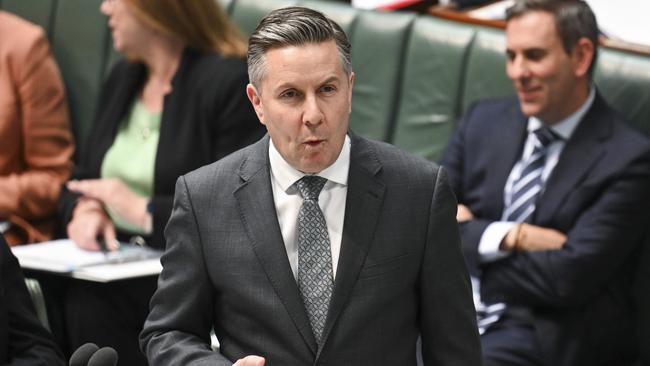
The broad inquiry, which was announced by Anthony Albanese in September 2023, was tasked with considering the health and non-health responses to the pandemic however controversially did not require state and territory leaders to give evidence.
Mr Butler said the CDC would ensure Australia was “prepared” for the next pandemic.
“As the Covid-19 Response Inquiry highlighted, Australia wasn’t prepared for a pandemic,” he said.
“Because of the lack of planning, Australia’s pandemic response to Covid was slow, confused and lacked authority.
“The establishment of the Australian CDC will ensure we are prepared next time.”
Mr Butler said the CDC would also “stress test” Australia’s ability to respond to a potential Avian flu outbreak and play a role in other “preparatory work”.
In response to the report, Peter Dutton blasted it as a “political hit job” and said it was an attempt to “distract away from the Prime Minister’s other big issues at the moment”, hinting at the furore over free upgraded Qantas flights Mr Albanese received while transport minister.
While the Opposition Leader said the Coalition would read through the report “in detail,” he didn’t commit to supporting legislation required to create a CDC.
“We support sensible recommendations, and we’ll look at the policies,” he said.
DOCTORS CALL FOR URGENCY
A peak doctor’s group has criticised state and territory governments in the wake of the report, accusing them of putting a key recommendation at risk with “potentially disastrous consequences”.
The Australian Medical Association President Dr Danielle McMullen said the next pandemic “could be just around the corner” and states and territories needed to get behind the Australian Centre for Disease Control, following the report’s calls to finalise its establishment.
“Without a fully developed CDC we will be left with a system of state and territory and federal arrangements that are not well integrated or fit-for-purpose,” she said.
“Australia’s response would be stymied, with potentially disastrous consequences for Australians.
”Australia is the only OECD country without a CDC or equivalent and we need it urgently.
“This can’t be a piecemeal exercise.”
She said the CDC, which the AMA supported in its own submission to the inquiry, was already behind schedule and welcomed the Federal Government’s announcement of ongoing funding.
“We’ve had some concerns about delays in getting the CDC up and running, with the full implementation falling behind schedule,” she said.
“We are concerned that jurisdictional differences, unwarranted concerns about the establishment of an independent body and the failure to fully appreciate the benefits of a national approach to tackle future health challenges are stymying the development of the CDC.”
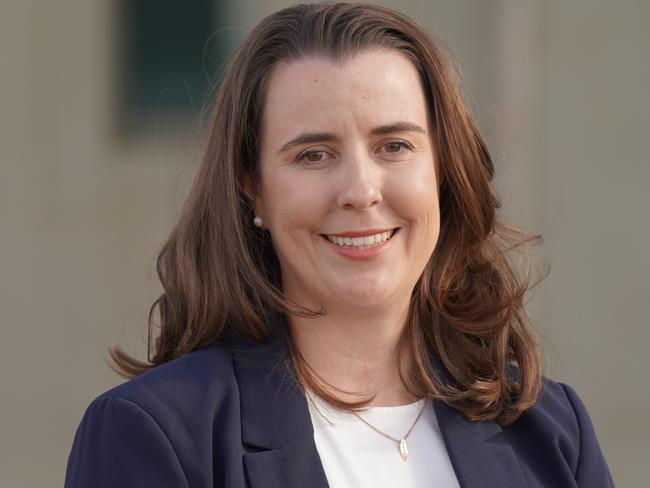
She said the CDC should have its own legislation and advisory body with medical practitioners.
“Now is the time to act on what we have learned so we can respond more effectively the next time we have a crisis,” she said.
Australasian Society for Infectious Diseases president Professor Joe Doyle welcomed the report - which warned another pandemic was “likely to occur within our lifetime” - and called for “bipartisan support” for all recommendations, including the CDC.
An Australian Centre for Disease Control will be “critical for enhancing Australia’s response to pandemics and other emerging infectious disease threats”, he said.
The Public Health Association of Australia also welcomed the CDC, but called for it to focus on chronic - in addition to infectious - diseases.
Chief executive Adjunct Professor Terry Slevin said the funding of about $60 million a year was a “modest but vitally important launching point from which the CDC should grow”.
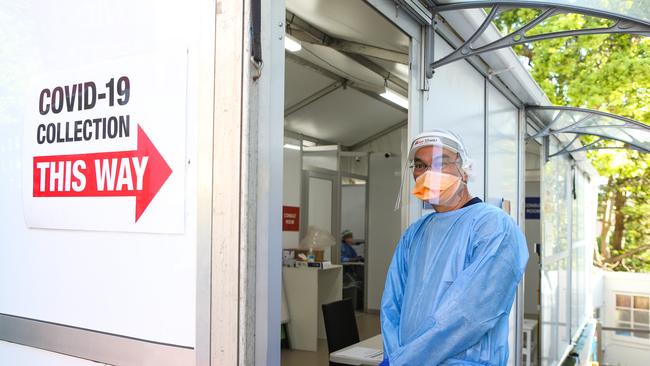
But Australian Catholic University medical sciences senior lecturer Dr Roger Lord said, while a “first step in the right direction”, the inquiry’s recommendations lacked detail and responsibilities were, for some of them, still unclear.
“It is not clear how some of the actionable items will be achieved and where these will overlap between federal/state health departments and the establishment of a Centre for Disease Control,” he said.
“This document is a first step in the right direction, but considerably more detail is required to ascertain if actionable items are achievable in the time frames provided before another pandemic.
“Centralised Australia-wide action plans need to be implemented for the next pandemic.
“This is highlighted in the report but how (or if) this will be implemented quickly and effectively is still uncertain.”
Australian Science Media Centre news and partnerships director Lyndal Byford said the centre welcomed “any steps to improve the transparency of the advice that informs government decisions”.
“The COVID-19 inquiry report has found that scientists and health experts were the most trusted sources of COVID-19 information in Australia, but it also found that many of our key experts were prevented from fully engaging with the media and the public,” she said.
“This fuelled distrust and allowed commentary by everyone except the experts best placed to explain,” she said.
She said more work was needed to support experts from increasing online harassment, bullying and threats, with the report finding this issue could “affect expert’s willingness to publicly engage in a future crisis”.
Sydney University Brain and Mind Centre’s Professor Ian Hickie said he was pleased to see the report’s emphasis on the pandemic’s mental health impacts and authorities need to have a greater focus on this issue.
“In future, these factors need to be upfront in terms of decision-making, planning and provision of key support services,” he said.


